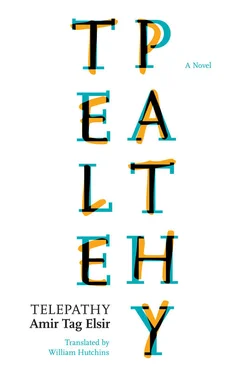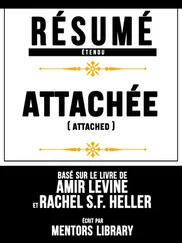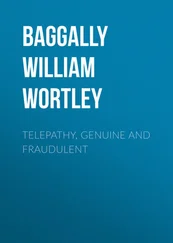Abd al-Qawi the Shadow had risen from his recumbent position on the rope bed and stepped youthfully into a room that he used as an office and that overlooked the courtyard where we were sitting. As he left, he told me that an idea had struck him, even though it was before his scheduled writing time, which normally began at ten. He would just jot the idea down quickly and return. What astonished me about the Shadow was how entirely convinced he was that he was brilliant and world-renowned and the master of whatever situation he found himself in (or didn’t). Consequently, he was treating me now, despite my age and fame, as if I were a novice who was wasting his time. I always remind myself when I meet with him that he is much older than I am and was a luminous star when I was merely a myopic toddler who could write nothing besides his own name. Though it’s true that I haven’t been influenced by him and haven’t written drama or poetry while he hasn’t written a novel, all the same I consider him my master and the master of my whole generation.
Half a minute later he returned shouting, “I found inches of dust in my office, and the sentence flew away. I’ll remember it later when they clean the office. . Linda! Ni‘ma!. . Dust makes thinking impossible.”
He resumed his recumbent position on the rope cot. It was droopy, and some of the ropes had pulled loose. I was smoking, and my question may have been waiting at the tip of my tongue. Then it leapt out: “You didn’t tell me how Matthew’s and Nishan Hamza’s stories are related. Did the priest sign his name? Did he know the characters, live with them, and then send them in the dream?”
“No. . I really didn’t expect this question from you, Writer. What is the relationship between a Christian cleric and a dictatorship? How could he play himself in a story criticizing the dictatorship? I said that he composed a play about the dictatorship in his mind and sent it to me so I could write it down on paper. He was in telepathic communication with me, without either of us realizing that, and this is exactly how Nishan Hamza communicated with you. The difference is that Father Matthew wasn’t personally involved with the fate of the characters; it made no difference to him whether the Republican Palace collapsed on the heads of the people working there. Nishan, however, came to you to change his destiny. You wrote in your novel that he dies of glandular cancer, and he doesn’t want to die. He can live with schizophrenia and deal with it, since he won’t die from it. But he’s terrified of dying of cancer and is begging you to help him. Do you understand now?”
I understood some things, but other matters still escaped my comprehension. I told myself but not the Shadow this.
Why hadn’t Father Matthew tried to record his play on paper himself, since he was the author? Why had Nishan tampered with details of his own story? Why hadn’t he ended it with schizophrenia since he feared dying? There were no answers to these questions, which even lacked a framework of logic within which they could be answered.
Another question that I considered extremely important was now smoldering at the tip of my tongue: “How did you know it was Father Matthew who sent you that play telepathically rather than someone else? How did you establish that?”
Abd al-Qawi the Shadow laughed till his tight core abdominals quivered, and he raised himself from his recumbent position to sit upright on the bed. He was barefoot and his feet were slender but had some ugly scabs. He reached for the coffeemaker to pour each of us a cup, but found it empty.
He replied, “This is a secret I won’t share with you. I haven’t disclosed it to anyone. I promised Father Matthew fifty years ago I wouldn’t tell anyone. Just two days ago I visited his grave and renewed my vow. What I want you to do is to show as much concern for your co-author as you possibly can. I took a special interest in the priest until he died. I actively supported him, because he added to my vita the important distinction of serving as a political prisoner.”
I selected — from what I sensed would prove an endless chain — a final question: “Did you attempt to figure out how all that transpired? Did you arrive at a theory that explains his telepathic communication with you?”
“No. .” the Shadow replied sharply. “I didn’t feel I needed to.”
A brown-complexioned girl with small breasts and short hair, which was massed on the crown of her head, appeared from inside the house. She was presumably either a maid or a family member. Carrying a feather duster, she headed to the room the Shadow used as an office. I had entered that room dozens of times. In my early days I had scouted what he was reading, having a look at the books lying around with pages turned down or folded. I occasionally borrowed a book that appealed to me, without asking permission, and then either returned it or not. Last year when we were sitting in his office, he handed me a short story written out by hand on glossy paper. He said it was by a young woman and asked me for my candid opinion of it.
I had taken the piece of paper and, glancing at it, discovered that it was supercilious Najma’s story “The Neighbors’ Goat”. She must have brought it to him after she was angered by my negative opinion of it. I read it again carefully while he watched.
Then I observed, “Not fully cooked and lacks a lot of the requisite spices.”
“Right,” the Shadow responded as his old man’s face glowed with a smile. “That’s my opinion too. But that’s not what I told the author. I’m not in the habit of expressing blunt opinions to women — not even when they write about manicures, shampoo, and Wella beauty products.”
“So how do you avoid the potholes of their insistence on hearing your opinion? Do you flatter them?”
Abd al-Qawi the Shadow laughed, revealing teeth that were uniformly white and shiny. He must have a full set of dentures; no teeth, not even ones borrowed from jackals or hyenas, remain a bright, gleaming white and completely uniform on both jaws up to the age of eighty-nine. The memory may retain its contents and the body, with daily exercise, may stay fit, but teeth, which are crude grinding machines, cannot remain that solid.
The Shadow responded, “I manifest naughty senility toward them: the tongue’s twaddle, my hands’ gestures, and my eyes’ lasciviousness. Then they leave me never to return.”
I had laughed as I pictured that poor girl, who loved her story and came to present it to an expert, only to be confronted by an old man flirting in a way she would never have imagined. I could picture Najma in that situation and felt like laughing some more.
“What about male authors? How do you deal with them?”
“I vanquish them by chattering on about a past that I invent from whole cloth and about my frustration with writing. They don’t knock on my door again after that.”
The brown girl emerged from the room; the feather duster in her hand was all red now. She must have used it to remove the dust that had caused the adventitious sentence to fly out of the Shadow’s head. He would enter his office now to begin his daily writing, which I knew would continue till three p.m. It was almost ten a.m., and I would not leave him time to feel anxious or to glance at his watch. I thanked him for his help, although he really hadn’t helped me much. He hadn’t told me anything that I had not already told myself in even greater detail when I considered Nishan’s enigma: that this was an SOS from a fearful man who was awaiting a response from me.
As I headed toward the door, I asked, “Should I send you a copy of Hunger’s Hopes ? I’ve been preoccupied and haven’t sent you your copy. I know you haven’t read it yet.”
Читать дальше












